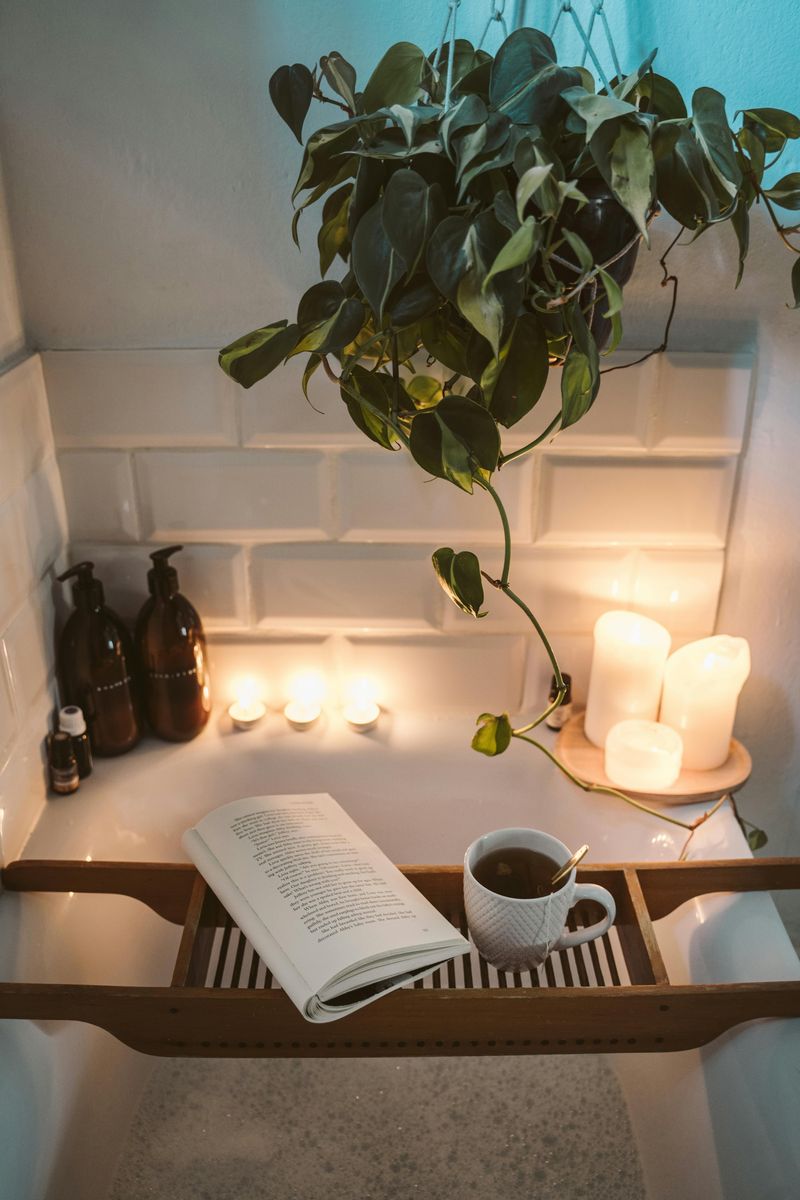9 Restorative Weekend Practices That Make Monday Mornings Feel Easier

Dreading Monday morning is a feeling many of us know too well. The weekend-to-workweek transition often feels jarring, leaving us stressed and unprepared. But what if your weekend activities could actually set you up for a smoother start to the week? These 9 simple practices can transform your weekend into a true reset button, making Monday feel less like a mountain to climb and more like a manageable molehill.
1. Start Your Morning Slowly

Remember when mornings weren’t a mad dash? Weekend slowness can be magical. Instead of jumping out of bed, give yourself permission to ease into the day gradually.
Savor that first cup of coffee while gazing out the window. Stretch your limbs under warm covers before planting feet on the floor. Jot down dreams or thoughts in a bedside journal.
This intentional slowness retrains your nervous system to operate from a place of calm rather than chaos. The practice creates a peaceful template that your body remembers when Monday arrives, making the transition gentler on your system.
2. Move in a Way That Feels Good

Exercise becomes a chore when it’s something you “should” do. Weekend movement works best when it springs from joy rather than obligation.
Find activities that make your body happy—perhaps a meandering walk through the neighborhood, gentle yoga stretches on your living room floor, or dancing wildly to favorite songs. Your body craves movement, but not necessarily the regimented kind.
This pleasure-based approach resets your relationship with physical activity. When Monday arrives, your body remembers this positive connection, making it easier to incorporate movement throughout your workday rather than dreading scheduled exercise.
3. Plan (But Don’t Over-Schedule) Your Meals

Sunday meal anxiety is real! The secret isn’t elaborate meal prep that consumes your entire day—it’s simple preparation that gives you breathing room.
Roast a tray of colorful vegetables. Simmer a pot of hearty soup. Wash and store fresh fruits for easy grabbing. These small actions create a foundation for nourishment without overwhelming you.
The goal isn’t perfection but rather removing Monday morning food decisions when you’re already mentally taxed. Having something ready means one less thing to worry about as you transition back to work mode, allowing your brain to focus on more important matters.
4. Get Outside for a Reset

Nature has a remarkable way of calibrating our internal systems. Even brief outdoor time can dramatically shift perspective and mood.
Feel the sun warm your face for five minutes. Notice the patterns of clouds moving across the sky. Listen to birds conversing in the trees nearby. These small moments of connection ground you in the present.
Our brains evolved in natural settings, not under artificial lights and surrounded by screens. The weekend offers perfect opportunities to remember this fundamental relationship. Monday feels more manageable when you’ve given your nervous system this natural reset that continues working long after you’ve come back indoors.
5. Make Space for What Fills You Up

Weekends often disappear under the weight of errands and obligations. The antidote? Deliberately carving time for activities that replenish rather than deplete your energy reserves.
Maybe it’s losing yourself in a novel, meeting a friend for unhurried conversation, or getting absorbed in a creative project. The specific activity matters less than how it makes you feel—look for things that create that “time flew by” sensation.
This intentional joy-seeking acts as emotional fuel for the week ahead. Monday challenges feel less daunting when you’ve given yourself this gift of meaningful engagement that reminds you life extends beyond work responsibilities.
6. Reflect & Set Intentions for the Week Ahead

Sunday evening journaling creates a bridge between weekend freedom and workweek structure. Taking just ten minutes can transform your Monday mindset.
Jot down three things that went well during your weekend. List your top priorities (not everything—just the vital few) for the coming days. Consider one small thing you’ll do to care for yourself this week.
This practice provides closure to your weekend while creating a roadmap for what’s ahead. The magic happens when you externalize swirling thoughts onto paper, preventing the classic Sunday night anxiety spiral and allowing your brain to rest rather than rehearsing Monday’s challenges all night long.
7. Bookend Your Weekend with Rituals

Friday night signals freedom! Creating distinctive markers that separate workdays from weekend can strengthen your sense of time off.
Begin weekends with something that definitively closes your workweek—perhaps a special dinner, a neighborhood walk, or changing into clothes that feel different from work attire. End Sunday with calming activities like preparing clothes for Monday, a relaxing bath, or reading something inspiring.
These bookends create psychological containers that make your weekend feel complete rather than merely a brief pause in work. The Sunday evening ritual is particularly powerful, creating a gentle transition runway instead of the jarring crash landing many experience when Monday arrives.
8. Tidy Your Space

Walking into Monday with weekend chaos lingering around you creates immediate mental friction. A 15-minute tidying session works wonders for your future self.
Clear kitchen counters of weekend dishes. Return scattered items to their proper homes. Make your bed with fresh sheets. The goal isn’t perfection but rather creating visual calm.
Our physical environment directly impacts our mental state in ways we often underestimate. Waking up Monday to an orderly space reduces cognitive load precisely when you need your mental bandwidth most. This small weekend investment pays dividends in reduced morning stress and a greater sense of control as your week begins.
9. Digital Detox

Constant connectivity drains our mental batteries faster than almost anything else. Unplugging creates space for genuine restoration that screen time can’t provide.
Try disconnecting for even a few hours—place your phone in another room, turn off notifications, or designate certain weekend periods as tech-free zones. Notice how different your surroundings look when not viewed through a screen.
This boundary-setting practice retrains your brain’s dependence on digital stimulation. Monday’s inevitable flood of emails and messages becomes easier to manage when you’ve given your attention muscles this weekend rest. You’ll return to technology with greater focus and less of the scattered, reactive energy that characterizes digital burnout.

Comments
Loading…